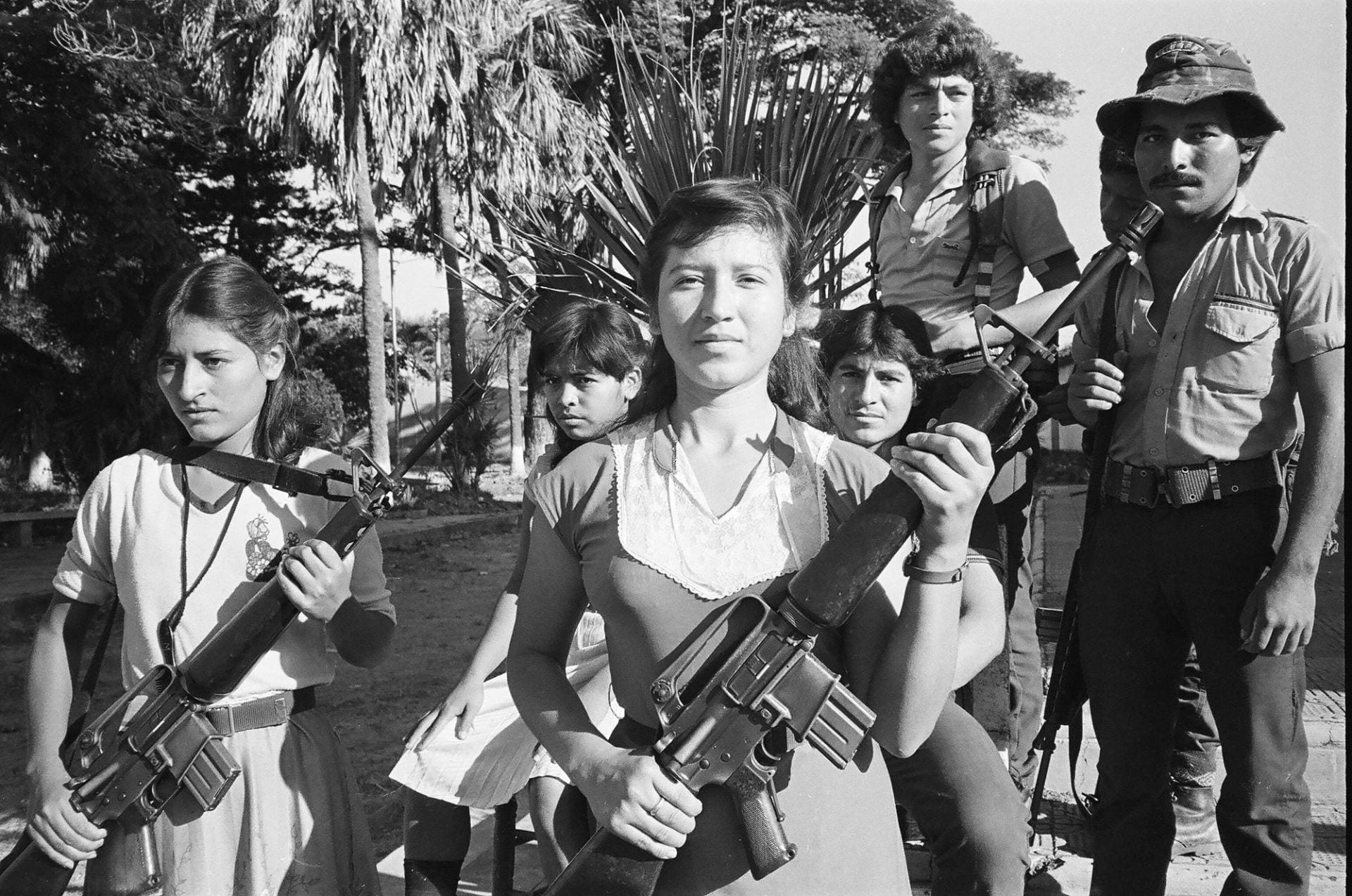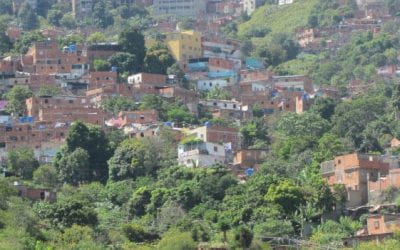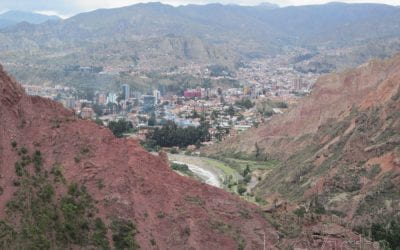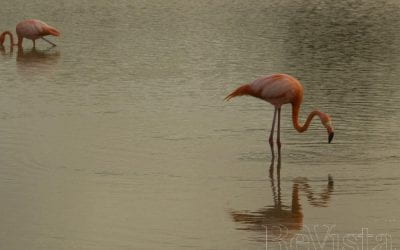Making a Difference: Displacement
A Personal View
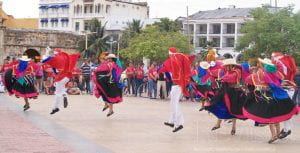
Just down the road from joyous festivals, women face the overwhelming obstacles of displacement. Photo courtesy of Maria Dieci
Maria and I shared two things when I met her in Medellin, Colombia: name and age. However, even that was questionable, for her tired eyes and silvery wisps of hair made her look twice her age as she sank onto the crate opposite mine, the first time she had sat down all day. Seen in the flickering light of a few candles, heard over the steady beating of the rain against the tin roof of the shed, in the company of two softly clucking chickens, Maria shared her life with me: completely, honestly and without expectations. The questions I had carefully prepared in Spanish lay forgotten.
Maria, I realized, was precisely the reason I had traveled to Colombia. I had gone there to meet the women whom until then I only knew theoretically, in lectures and through impassioned conversations with classmates. During the summer I worked on my thesis research, I engaged with issues that have defined my academic trajectory through a host of experiences, invigorating discussion and new friendships with dedicated professionals and resolute women. In Colombia, I met women who were up against insurmountable obstacles, but I also found there a broader energy for progress. I entered a country where the Constitution states that healthcare is a fundamental human right, alongside some of the most progressive laws protecting women. In Colombia, I saw promise and momentum for change.
Maria said, “I have been displaced five times in the last five years, and each time, I think this has to be the last. I was seventeen and estranged from my family when I was forced to leave my home by the armed groups. I fled from everything and everyone I knew, and began working in the coffee fields, picking and shelling beans for fourteen hours a day to sustain myself. That period was a blur and I was utterly alone, with no one to turn to for help. I was lonely, terrified, and I got pregnant. I never knew his name, and he will never know his daughter. My daughter has given me life again; her laughter, innocence and companionship awakening me from my solitude. I try to hide the evils of the world from her, but it is hard when they knock on our door every day, breaking it down and throwing us out into the street.”
Maria spoke of heartache and hunger, violence and injustice. I listened as she detailed her most recent eviction, which destroyed yet another home she had built for herself and her daughter. She now sleeps on an abandoned soccer field with her neighbors, who were also victims of this aggression.
But she also spoke of her neighbors’ kindness, of her tightknit community, and of the wonderful people that God put in her life: the abuela who feeds her daughter when she cannot, a friend who babysits so she can look for a job. We sat in silence and let Maria’s words wash over us. She sits a little taller, and our eyes meet. Hers are no longer sad, but fiery and resolute. As Maria walks out into the rain with her shoulders squared, I know that we share much more than just a name and age. We share a strong, passionate hope that her daughter will grow up in a more equitable Colombia. We share a deep gratitude for the generous people who have come into our lives and share their worlds with us unconditionally.
Maria Dieci is a senior in Leverett House, concentrating in Social Studies. She has combined her regional interest in Latin America with her topical interest in public health throughout her coursework as well as her research experiences over the past two summers. Most recently, with the generous support of a DRCLAS Independent Research Grant, she conducted field research in Colombia on the impact of internal displacement on maternal health care and access.
Related Articles
Grandmothers and Engineers
A little known fact about Venezuela is that grandmothers and engineers are at the forefront of the struggle to improve access to water and sanitation in poor neighborhoods. Nancy la Rosa, Rosalba Ruíz, Florencia Gutiérrez, Petra Escalona and Sulay Morales, all in their golden years, are working as spokespeople and organizers of the technical water committees (MTAs, mesas técnicas de agua) …
From Water Wars to Water Scarcity
When Bolivian President Evo Morales arrived at the new Uyuni airport last August and found no water running from the tap, he publicly reprimanded and promptly dismissed his Minister of Water. As it happened, the pipes were merely frozen. The incident underscores the critical—and highly symbolic—role of water in the politics of this landlocked Andean nation. …
First Take: The Struggle for Clean Drinking Water in Latin America
For the last few years I’ve been taking students from the University of Miami to the Galápagos Islands off the coast of Ecuador. We study the environment and the culture. We record the squeaky, hissy conversations of giant land tortoises and the volcanic-black marine iguanas that are found nowhere else. We swim with sea lions and penguins. …
